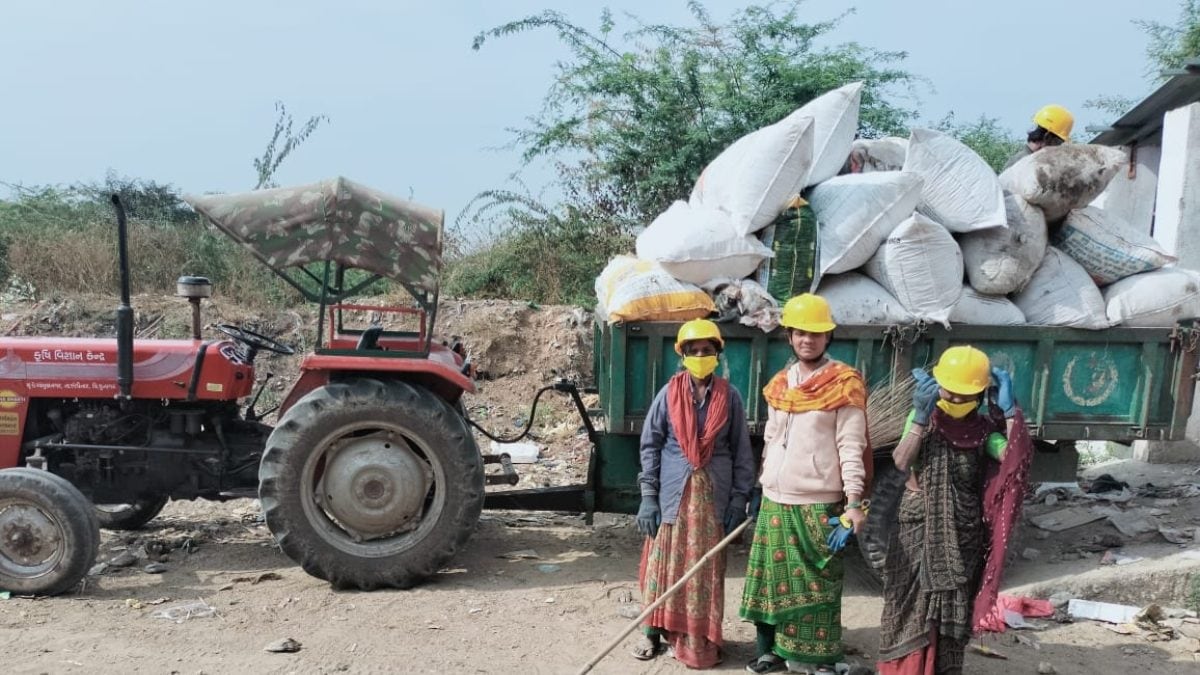Earth Day is celebrated annually on April 22, serving as a global reminder of the importance of environmental protection and sustainability. The theme for this year’s Earth Day is ‘Planet Vs Plastic,’ emphasizing the urgent need to address plastic pollution and its impact on our environment. Pearl Tiwari, CEO of the Ambuja Foundation, offers her insights on Earth Day.
Plastic has become ubiquitous in our modern day lives, however the same properties that make plastics so useful to us, means they are nearly impossible for nature to break down. They are, in fact, so durable that plastic waste — whether in water or on land — can persist in the environment for centuries. This means that our planet is literally choking on plastic.
ALSO READ: Earth Day 2024: Theme, History, 10 Facts, and How to Take Action!
And yet, single use plastic consumption has never been higher! We have become addicted to single-use plastic products — around the world, one million plastic bottles are purchased every minute, while up to five trillion plastic bags are used worldwide every year.
Solving the problem requires change at all levels – government regulations and policies; corporate ethics and sustainability; waste management; and finally, consumer behaviour.
Perhaps the last place we would turn to for inspiration on the matter, is in the heart of rural India where villagers are ‘walking the talk’ and taking action on the matter – setting up sustainable long term waste management solutions that have not only transformed the behaviour of citizens, but transformed their entire town!
Here are two inspiring stories to catapult us all from merely talking about the issue, to taking action:
VADNAGAR, GUJARAT
In the small hamlet of Vadnagar, Gujarat, the community has united to set up a Solid Waste Management Centre and has undergone a transformation in behaviour – reducing plastic use, recycling plastic and other waste, and transforming their village from a once unsightly and unhygienic dumping ground, to an idyllic, clean rural community.
Vadnagar Gram Panchayat in Kodinar Block of Gir Somanath district in Gujarat has set a healthy precedent towards eliminating plastic waste and achieving visual cleanliness through an innovative and low-cost, cluster level system for solid/plastic waste management.
Putting in place a system for the collection, segregation and transportation of waste, while making maximum utilization of available resources, the village is a unique example of what small communities can achieve if they collaborate and work together.
To begin with, they hired a sanitation worker to collect and segregate waste from house to house. After that a group was created to collect and segregate the plastics, in the Gram Panchayat established waste segregation shed. Whilst they faced initial challenges in that people would not segregate waste properly, consistent interpersonal communication, school programme, community meetings, and behaviour change communication’s activities saw almost all households taking their role seriously and becoming an integral link in the system.
With the focus of Swachh Bharat Mission shifting in Phase 2 to address the issue of solid and liquid waste management in India, willing and committed communities like Vadnagar can tap into a variety of government schemes to support them in their waste management journey.
In Vadnagar, a linkage between the local SHG and panchayat has seen the community tap into the government incentive of Rs.10 per kilo of plastic waste provided, which has helped support the sustainability of their initiative.
MOHI KALAN IN RAJPURA, PUNJAB
Further north, in the village of Mohi Kalan in Rajpura, Punjab, the community and the Panchayat decided to do something radical about waste, uniting and working with both an NGO and the Panchayat to develop their very own solid waste management system and facility on the outskirts of town. Today, every household enjoys regular waste collection by a cycle rickshaw, with waste being segregated at the facility for reuse, recycling, recovery or disposal.
With every household receiving bins for both wet and dry waste, they have also received widespread awareness and education on the proper way to segregate waste for collection. Every household contributes Rs. 50 per month for the initiative – and the entire village is reaping the rewards. Streets are clean and litter free. Water ways are clear and drinking water uncontaminated. Wet waste is composted to create manure for use in local fields, and plastic and glass are recycled as much as possible.
And word is spreading. Neighbouring villages have admired their work and have approached the panchayat to follow suite and initiate a similar waste disposal initiative in their community also.
With over 6 lakh rural villages across India generating 0.3-0.4 million metric tons of waste per day, solid waste management is quickly becoming the need of the hour. But villages like Vadnagar and Mohi Kalan are leading the way and provide a shining light of what can be achieved when people come together and work collaboratively with civil society and government.
If historic growth trends continue, global production of primary plastic is forecasted to reach 1,100 million tonnes by 2050. As the most populous country on earth, with some of the worst indicators for environmental sustainability, we cannot afford to simply sit around and wait for ‘someone else’ to do something about it. Each and every one of us must look at our own behaviour and sphere of influence and as Gandhi espoused, ‘be the change we want to see in the world.’
Surely if the villagers of rural Gujarat and Punjab can do it, so can we!
Stay Ahead With all the Lok Sabha Election 2024 Related Real-Time Updates At News18 Website.


